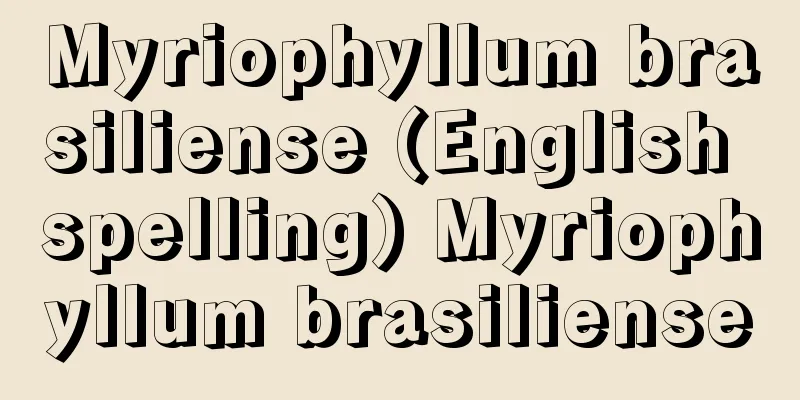Complaint - Complain

[1] [Ta Ha 2] ⇒ kamaeru (組) [2] [Independent Wa 5 (Ha 4)] (The verb "kamafu" meaning to be mentally prepared has become a 4-step conjugated intransitive verb meaning to be mentally prepared to do something.) ① It refers to being in a state of particularly paying attention to something, or having a particular interest in it. To be related to. To have a connection. To be aware of. Also, to be particular about. To be considerate. To interfere. It is often used with the particle "ni" in the form "... nikamafu," and many are accompanied by negative expressions below. ※Nippo-Portuguese Dictionary (1603-04) "hito ni camauanu (kamawanu) " ※Social Hundred Faces (1902)〈Uchida Roan〉Film "Whether you become a thief 's concubine or a beggar's concubine is none of your business." ② (As a result of having a relationship) To be in the way. To be in the way. → It doesn't matter. ※Honpuku-ji Temple Ruins (around 1560) "When taking the barrier, there must be many things to be concerned about." ※I Am a Cat (1905-06)〈Natsume Soseki〉II "Whether it's a cat or not, when it comes to this, who cares?" ③ (From the act of paying attention to something) To look after. To look after. To protect. ※Kanazoshi, Shimizu Monogatari (1638), part 2: "It is I who will pay attention to the future. If there is attention, it is a matter of being a retainer of Munenori (Sobe) ." ※Tsuchi (1910), Nagatsuka Setsu, part 1: "The lady was not able to pay attention to the usual way of chicken-picking and such ." ④ To treat someone as an opponent. To become an opponent. Also, to make unnecessary advances. Also, to entertain with food and drinks. ※Sakehon, Shirin Zanka (1730), Geibunshi: " He offers sake, and says attention, and says obstruction , and says distance ." ※Mulberry Fruit (1913), Suzuki Miekichi, part 24: "Madam, please don't pay attention to anything anymore. I'll have plenty of tea, too." ⑤ Animals and birds mate (Nippo Jisho (1603-04)). [3] 〘Tahaha 4〙① To forbid or banish. ※Haikai, Butsushushu (1678) “Half of Japan is in disarray. The Genji and Taira clans are watching each other closely (Soin).” ※Kabuki, Sanaetori Date Monbiki (The True Story of Sendaihagi) (1876) Act 6 “The fact that you participated in the crime spread to the ears of the elders and you were made friends . ” ② (Developing from the feeling of “treating someone as an opponent” in (2)④) To make fun of or hurt the target. To play around with someone. ※Waei Rinshusei (First Edition) (1867) “Darewa omaie wo kamatta (kamatta) ”Kamae Kamae [Composition]Kamaeru (composition)Kamaikamahi [construction]Kama-yu [structure]Source: The Selected Edition of the Japanese Language Dictionary About the Selected Edition of the Japanese Language Dictionary Information |
[1] 〘他ハ下二〙 ⇒かまえる(構)[2] 〘自ワ五(ハ四)〙 (心構えをする意の下二段動詞「かまふ」が四段活用化して、心にかまえて事をする状態にあることをいう自動詞になったものか)① あることに、特に心を向ける状態にある、特に関心を持つ気持をいう。関係を持つ。関係がある。関知する。また、こだわる。気を使う。干渉する。助詞「に」を伴って「…にかまふ」の形で多く用いられ、また、多くは下に否定の表現を伴う。※日葡辞書(1603‐04)「ヒトニ camauanu(カマワヌ)」※社会百面相(1902)〈内田魯庵〉電影「盗賊(どろぼう)の妾(めかけ)にならうと乞食の妾にならうと貴郎の係(カマ)った事ッちゃ無い」② (関係を持った結果)さしさわる。さしつかえる。→かまわない。※本福寺跡書(1560頃)「関をとるに、万端かまふ儀多かるべし」※吾輩は猫である(1905‐06)〈夏目漱石〉二「猫であらうが、あるまいが斯うなった日にゃあ構ふものか」③ (ある事に関して、それに気を使うところから) 面倒をみる。世話をする。かばう。※仮名草子・清水物語(1638)下「さきさきまでかまふといふ事はわたくしなり。かまひあるは宗庿(そうべう)の臣一品成べし」※土(1910)〈長塚節〉一「お品は平常(いつも)のやうに鶏抔(など)へ構(カマ)っては居(を)られなかった」④ 相手としてあしらう。相手になる。また、無用の働きかけをする。また、酒食などでもてなす。※洒落本・史林残花(1730)芸文志「進レ酒曰レ構(カマフ)、曰レ碍、曰レ間」※桑の実(1913)〈鈴木三重吉〉二四「おかみさん、もう何にも構はないで下さいな。お茶も沢山」⑤ 獣や鳥が交尾する(日葡辞書(1603‐04))。[3] 〘他ハ四〙① 禁制にする。また、追放する。※俳諧・物種集(1678)「日本半分かまはれにけり 鞘当や源平互に急度見て〈宗因〉」※歌舞伎・早苗鳥伊達聞書(実録先代萩)(1876)六幕「悪事へ荷担をした事が、誰いふとなく年寄衆の耳へはひって仲間を構(カマ)はれ」② ((二)④の「相手としてあしらう」気持が発展して) その対象をからかったり傷つけたりする。相手にしてふざける。※和英語林集成(初版)(1867)「ダレワ オマイエヲ kamatta(カマッタ)」
かまえ かまへ【構】かま・える かまへる【構】かまい かまひ【構】かま・ゆ【構】出典 精選版 日本国語大辞典精選版 日本国語大辞典について 情報 |
>>: Proboscis beetle - Proboscis beetle
Recommend
Square net - Kakuami
A type of trap net. It consists of a fence net tha...
Churui [village] - Churui
A village in Hiroo District, Tokachi Subprefecture...
Koenigswald, GHRvon (English spelling) KoenigswaldGHRvon
...German-born paleontologist and anthropologist....
Forfeiture clause - Shikken Yakkan
A clause attached to a contract that automatically...
Vulcan gun
An aircraft machine gun that fires by rotating si...
Konyoji Temple
A Shingon Buddhist temple in Itami, Hyogo Prefectu...
Daijuji Temple
This temple is located in Kamoda-cho, Okazaki Cit...
Garcia, Carlos Polestico
Born: November 4, 1896 in Talbon Died: June 14, 19...
Scrophularia kakudensis (English spelling) Scrophulariakakudensis
… [Kei Yamazaki]. … *Some of the terminology that...
Fable - Gūgen
〘noun〙① A story that uses other things to express ...
Chivalrous man - kyōkaku
[China] In ancient China, those who formed gangs ...
Ashabad - Asuhabad
…It is located 40 km from the Iranian border, in ...
Kutcher - Kutcher
...Because of the sanctity of cows, eating them i...
Cestrum purpureum (English spelling) Cestrum purpureum
…[Ichiro Sakanashi]. … *Some of the terminology t...
Amish - The Amish are
A Protestant sect of Christianity. It was founded ...









